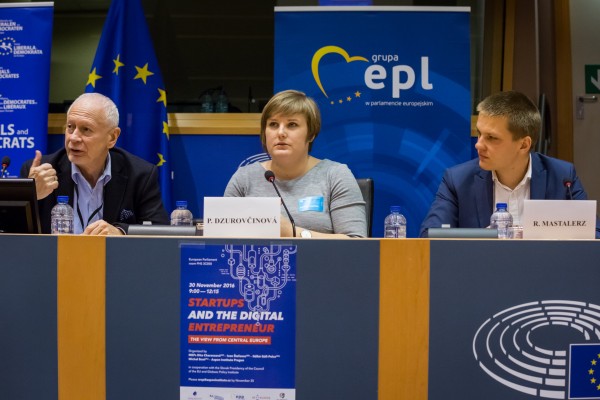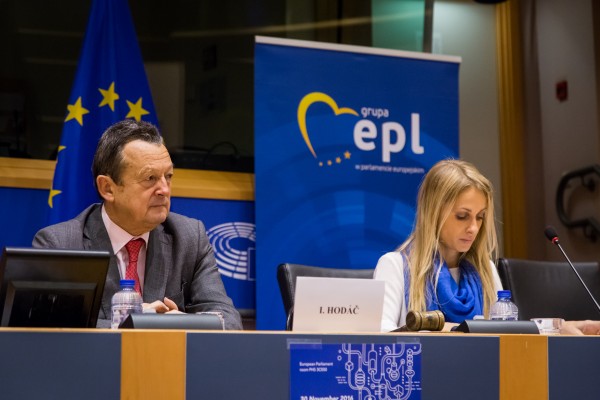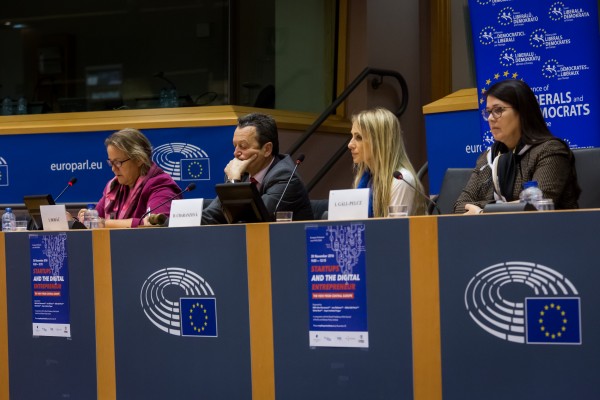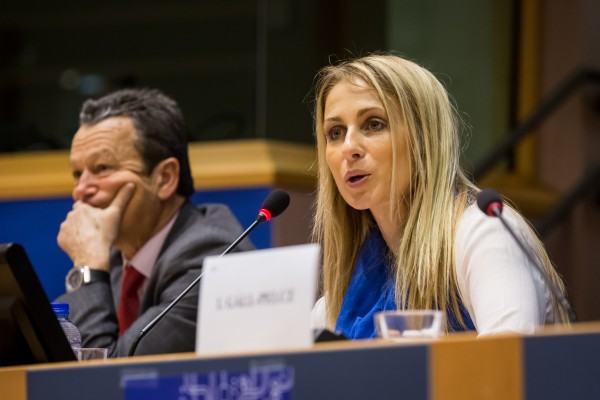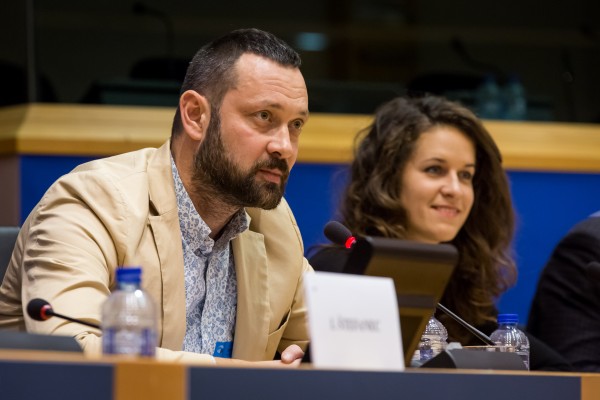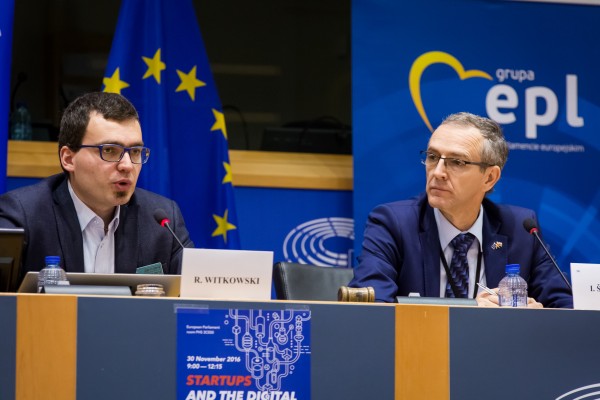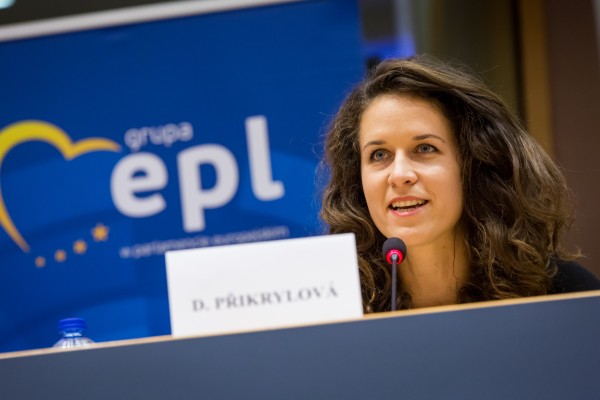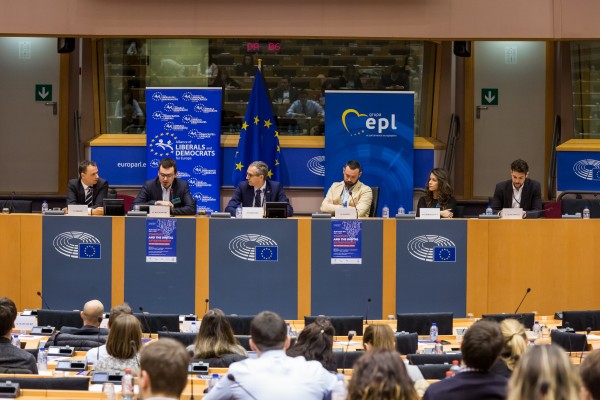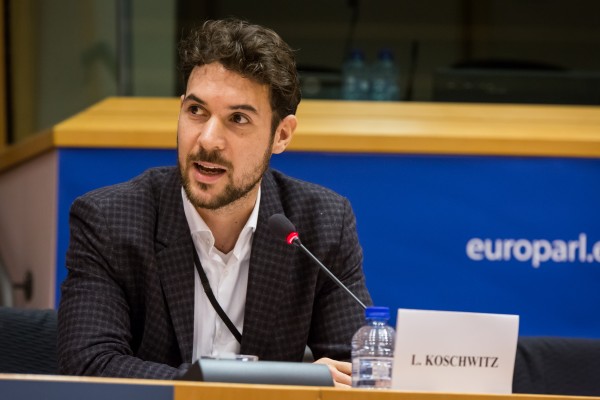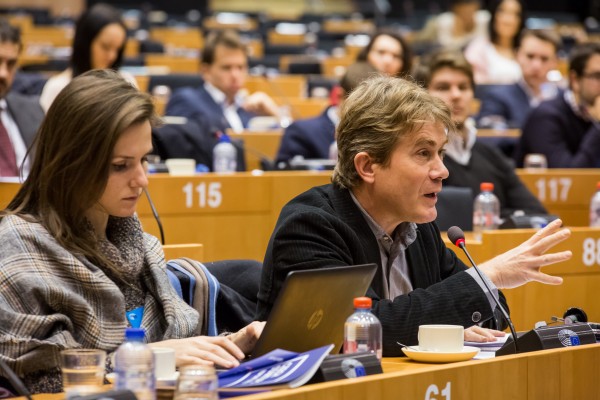Aspen Institute Prague in cooperation with our board member Dita Charanzová organized a discussion on Startups and the Digital Entrepreneur in the perspective of Central Europe. The discussion took place at the European Parliament in Brussels on November 30, 2016. See the video record and the report below or the #V4startups on Twitter! See the program.
Thanks to @charanzova @MichalBoni @IvanStefanec @Aspen_Prague for listening to the voice of #startups. #V4Startups pic.twitter.com/MmFpzTLp3D
— Allied for Startups (@Allied4Startups) 30. listopadu 2016
If we want to help #startups to scale up, we need to harmonize EU law says @MichalBoni at #V4Startups w/ @petradz @Feixm @charanzova
— Aspen Inst. Prague (@Aspen_Prague) 30. listopadu 2016
Report
The main problem in the EU regarding startups is not the lack of innovative companies but retaining them on this continent. There are numerous seed funds in member states yet, due to market fragmentation and insufficient smart money, promising companies leave the European Union. Considering these challenges, the European Commission drafted the Start-up and Scale-up Initiative. Besides bringing together all EU startup initiatives under one umbrella, the document prioritizes better access to venture capital, more flexible insolvency law and taxation. The Commission’s new initiative mentions specifically the creation of a single digital gateway (online one-stop-shop), a pan-European Venture Capital Fund of Funds, several VAT simplifications and legal instruments that will give honest entrepreneurs a second chance.
As the event was aimed at discussing the challenges European startups face, the organizers hosted a number of entrepreneurs from the region. Invited startupers briefly presented their success stories and described obstacles to business:
-
Legal fragmentation: when expanding in the EU, startups have to start 28 times i.e. in all 28 EU markets separately. Moreover, they not only have to comply with each national legislation but startups also must deal with legal differences at the municipal level, leading to high administrative and HR costs often creating huge barriers to entry and a pushto move out of the EU.
-
IT-oriented specialists: or lack thereof was mentioned by several speakers, who stressed not only the need to rewrite school curricula but also to facilitate the employment of skilled third-country workers e.g. via the implementation of startup visas schemes.
-
Tax collection: despite it being a long shot, entrepreneurs would welcome a single digital tax reporting and collecting system in the EU.
-
Data is the basis on which many startups construe their product and business models, therefore the EU authorities should do everything to guarantee free flow of data and the free movement of information should be added as the fifth EU freedom.
-
Startups and their advocacy platforms should pay close attention to new legislation on copyright, including the exception on text and data mining, so that they do not lose their competitiveness against players elsewhere. The changes brought by the PSD2 give both big banks and small companies equal access to infrastructure, and similar approach should be adopted in other areas such as access to data.
-
Dominant position of global platforms (such as Google and FB) was mentioned in light of conforming to tax and other legislation, which often affected small local companies whereas the big players could find ways around them. This disproportionality should be considered by EU lawmakers, who however should not how back innovation at the same time. The key is to find flexible ways to help dynamic entrepreneurs enter the market lawfully and not to punish them for introducing new technologies.
-
Sharing economy: creates big business potential but currently there is no agreement in the EU institutions on how to tackle it. The political question is how to make the transition away from traditional industries smoother and less painful for its employees.
-
Educating entrepreneurs and motivating global-first companies: not only enhancing digital literacy but it is also crucial to encourage an entrepreneurial mindsets. Programs like the Erasmus for Entrepreneurs can support this
-
Incentivizing technological startups and spin-offs to collaborate across borders and also in order to better use available EU funds (eg. from the Horizon 2020 program).
-
Startups are not asking to exempted from legislation, they are asking for simplifications!
This event was organized co-organized by the Aspen Institute Prague and four Visegrad MEPs (Michał Boni, Dita Charanzová, Ildikó Gáll Pelcz and Ivan Štefanec) in cooperation with the Slovak Presidency of the Council of the EU and Globsec Policy Institute.
Video record

